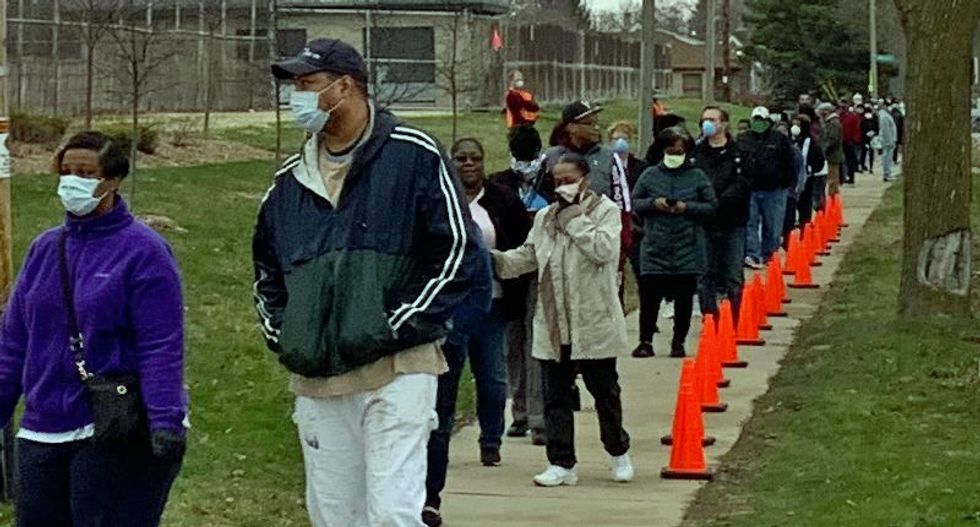
On Monday, the Supreme Court of Oklahoma struck down a requirement that absentee ballots be notarized, making it substantially easier to vote by mail ahead of an election threatened by fears of the coronavirus pandemic.
The decision, which follows a lawsuit by the League of Women Voters, is a victory for voting rights activists.
The controversy centered on a voting law passed in 2002. The League of Women Voters asserted this law only required a signed affidavit under penalty of perjury, rather than requiring the ballot to be notarized by a third party, and contended that in the current environment, this restriction would substantially reduce turnout.
The law also required each notary to approve a maximum of 20 ballots. According to Democratic voting rights attorney Marc Elias, this means if only half of Oklahoma's 2 million registered voters requested an absentee ballot, the state would need 50,000 notaries just to process them all.
The ease of voting by mail has become a hot-button issue after a political fight in Wisconsin, where Republicans in the legislature — combined with conservatives on the state and U.S. Supreme Courts — refused to expand absentee ballot access, forcing tens of thousands of people to risk infection to vote in person.




